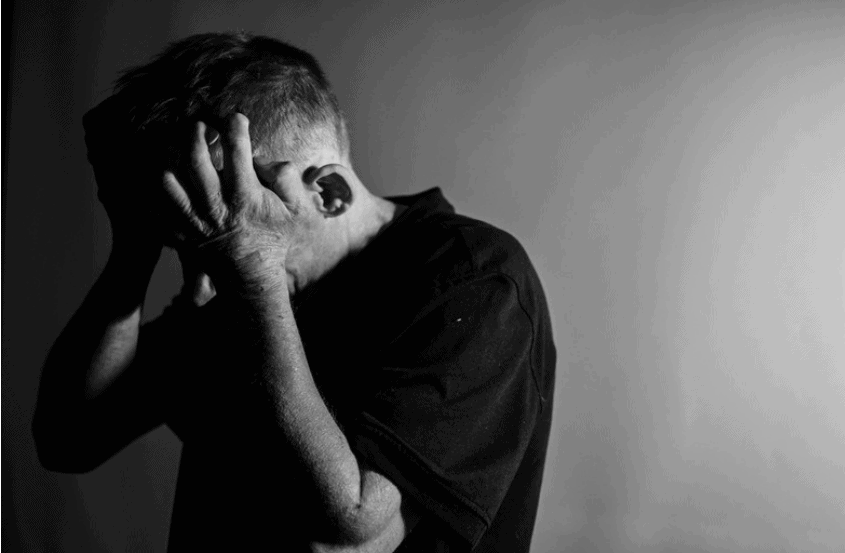Psychedelic drugs such as LSD, magic mushrooms, and psilocybin are gaining renewed attention for their potential to treat mental health disorders such as depression, anxiety, and addiction. But while many psychedelics have proven to be safe to use in research trials, their illegal status prevents formal research on their long-term effects and safety profile.
This lack of rigorous information is especially concerning when it comes to psychedelics’ potential to cause addiction and abuse. On top of that, data on the risks of using psychedelics comes from studies on recreational users who were administered high doses of the drugs.
In this article, we provide a brief overview of the negative effects of psychedelic drugs as well as the risks of psychedelic use for those with a history of substance abuse, those with a predisposition towards mental illness, and those with an underlying brain condition.
Psychedelic Drugs Affect The Brain in Complex Ways
Psychedelics affect the receptors in the brain that bind to neurotransmitters, chemical messengers that facilitate brain function and affect many different processes. Some of these receptors have low, medium, or high affinity for the various psychedelics, which means they affect the brain in different ways.
One way that psychedelics affect the brain is by increasing the amount of serotonin, a neurotransmitter that plays a role in mood regulation. Low levels of serotonin are often associated with depression, so an increase in its availability is often therapeutic for the condition.
Some psychedelics appear to increase the activation of dopamine pathways in the brain, which is associated with the sense of reward and the motivation to take action. As with serotonin, an increase in dopamine receptors is often therapeutic for individuals with low levels of dopamine in their system.
Finally, some psychedelics appear to decrease the amount of cortisol, a stress hormone that has negative impacts on the brain and body. Decreasing the amount of cortisol in the brain is often intended to improve conditions, such as lessening anxiety.
Psychedelic Drugs Are Highly Addictive
Given the significant impact that psychedelics have on the brain, it is not surprising that they are also highly addictive. In fact, many psychedelic substances have a high potential for abuse, meaning they can cause a strong psychological and/or physical dependence.
The danger of developing a strong addiction to a psychedelic is that users will do anything to get their next fix, even if it means taking risks that threaten their health and safety. For example, Magic mushrooms are a Class A substance in the UK, which means their possession is punishable with up to five years in jail. However, because of their illegality, many users do not respect this law.
Psychedelic Drugs Cause Brain Damage
While many psychedelics have beneficial effects on the brain, they are also proven to damage neurons. LSD and psilocybin, for example, have been shown to decrease the volume of neurons in the hypothalamus. Damage to this area of the brain has been linked to impairments in psychostimulant control, such as loss of control overeating and weight.
The risk of damage to the brain from using psychedelics is particularly high among individuals with a history of drug abuse or mental illness. Individuals with a history of substance abuse are more likely to take higher doses of psychedelics than individuals without a history of substance abuse. This increase in dose is associated with an increase in the amount of cortical damage from LSD.
Individuals with a predisposition towards mental illness are also at risk of brain damage due to the drug’s impact on the brain’s serotonin, dopamine, and norepinephrine receptors.
Psychedelic Drugs Have a High potential for Withdrawal
Many of the risks of using psychedelics are related to the drugs’ high potential for abuse and their ability to cause anxiety and depression in withdrawal. This makes psychedelics poor choices for people with an underlying mental health condition who are trying to get well.
Individuals who stop using psychedelics abruptly can suffer from symptoms of anxiety, dysphoria, and depression. These symptoms appear because the chemicals that psychedelics alter are in the brain’s reward system, which is responsible for feelings of pleasure and gratification. When people stop using psychedelics, this system goes back to its normal state, which causes the unpleasant symptoms of withdrawal.
LSD is particularly notorious for this cycle of use and withdrawal because of its strong psychological effects. LSD is often used to treat various psychological conditions, such as anxiety and depression. It can have a lasting impact on the user’s mental health, making them more likely to seek out other treatments such as medication.
LSD
Based on the amount of research that has been done on LSD, it is probably the safest of all the psychedelics. LSD is one of the first psychedelic drugs to be banned, and for good reason. It causes very few negative side effects, has a low potential for abuse, and does not appear to cause brain damage or cause dependence.
As with all psychoactive drugs, long-term use of LSD is not safe and can lead to negative consequences. However, due to its low potential for abuse, low risk of long-term side effects, and its historical status as a therapeutic drug, LSD is considered to be the safest psychedelic.
Mushrooms
Magic mushrooms have a much higher potential for harm based on the amount of research that has been done on them. They are unpredictable in their effects and can cause a range of negative side effects, including nausea and anxiety. They also have the ability to cause psychological dependence, which can lead to severe withdrawal symptoms upon discontinuation.
MDMA
MDMA, or ecstasy, is also a substance that has been studied extensively. Like LSD and mushrooms, it does not appear to cause brain damage. However, it does cause various negative side effects, including insomnia, anxiety, and depression.
Conclusion
Psychedelic drugs such as LSD, magic mushrooms, and psilocybin are gaining renewed attention for their potential to treat mental health disorders such as depression, anxiety, and addiction. But while many psychedelics have proven to be safe to use in research trials, their illegal status prevents formal research on their long-term effects and safety profile. This lack of rigorous information is especially concerning when it comes to psychedelics’ potential to cause addiction and abuse.
On top of that, data on the risks of using psychedelics comes from studies on recreational users who were administered high doses of the drugs. Because of the intense stigma surrounding these drugs, it is difficult to know how common these risks are for typical users who use them wisely under the supervision of a doctor. In this article, we provide a brief overview of the negative effects of psychedelic drugs as well as the risks of psychedelic use for those with a history of substance abuse, those with a predisposition towards mental illness, and those with an underlying brain condition.
Asheville Recovery Center Can Help
If you or someone you know is addicted to a hallucinogenic drug, it is important to get treatment. At Asheville Recovery Center treatment specialists utilize a 12-step program and practice holistic rehabilitation.
Services at the center include:
Partial Hospitalization Program – At Asheville Recovery Center we offer a partial hospitalization program for clients who need post-residential treatment as well as for clients who need primary treatment but are unable to enroll in inpatient programs. Our PHP track offers a variety of therapeutic services and benefits to individuals in early recovery from substance addiction.
Outpatient Rehabilitation – During intensive outpatient treatment (IOP), clients live at home or in a sober living residence while completing an addiction treatment program. IOP is a place where clients can process their experiences in twelve-step fellowships and support one another in those individual journeys.
Addiction is difficult to overcome alone. If you feel that you or a loved one is struggling with psychedelic drug abuse, our specialists are on standby and ready to help. Call and speak with an addiction expert today.









